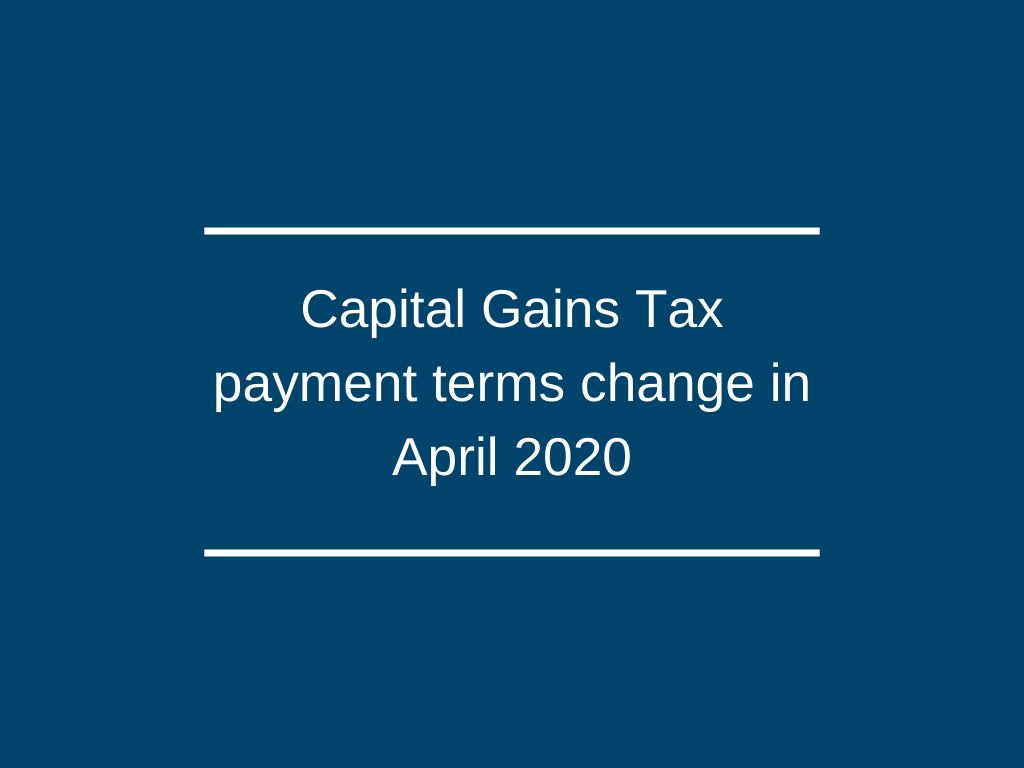
On 6 April 2020, Capital Gains Tax (CGT) payment terms will change. If you are selling a residential property, you will be required to settle any charges within a new 30-day period.
Taxpayers will not settle charges via the annual self-assessment process but will report the gains on their annual tax return.
Despite the fact that this represents a fundamental change to the administration of CGT on sales or disposals of UK residential property, it is one that has been scarcely publicised by HM Revenue & Customs (HMRC).
Changes to CGT payment terms
Currently, CGT at 28% is payable by 31 January in the tax year following that within which the disposal occurred.
However, where a taxable gain is made on the disposal of UK residential property, on or after 6 April, payment terms are reduced to 30 days from completion of the disposal. This means taxpayers must make a residential property return and a payment on account of CGT within 30 days.
A ‘payment on account’ is an advance payment of the total due. However, once calculations have been checked by HMRC, it is possible that corrections may be made.
Residential property returns will not be required where no gain/loss has been made on the disposal. This also applies to disposals where no tax is due.
Consequently, taxpayers will have less time available between disposal and needing to make a Capital Gains Tax payment.
Impact of the changes on property owners
You may be affected if you are disposing of a second home, rental property (landlords) or additional inherited property.
Many property owners are looking for answers, but HMRC’s guidance on the matter appears only to have caused mass confusion rather than offer any clarity.
Given the intricacies associated with disposing of property, seeking professional advice is wise. With the right support in place, you can be confident that you are compliant with the law and that your transaction is being carried out in the most tax-efficient manner possible.
If you are disposing of residential property after 6 April, you must be organised. Having your ducks in a row means you are more likely to meet the deadline and avoid penalties.
Furthermore, as a matter of priority, you should notify your accountant or adviser at the earliest opportunity. Notifying us promptly allows us time to gather the relevant information and advise you of the resulting tax liability.
How can George Hay help?
If you are thinking about disposing of a UK residential property and you are concerned about how the changes to the Capital Gains Tax payment terms might affect you, contact one of our property tax experts today to discuss your circumstances in more detail.